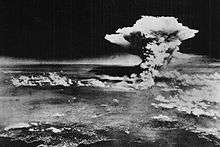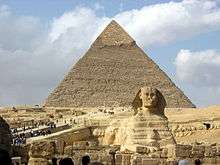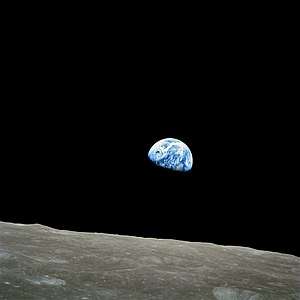
Civilization means not only comfort in daily necessities but also the refining of knowledge and the cultivation of virtue so as to elevate human life to a higher plane. ~ Fukuzawa Yukichi

As many as were the types of work involved in the enterprise, so many were the languages by which the human race was fragmented; and the more skill required for the type of work, the more rudimentary and barbaric the language they now spoke. But the holy tongue remained to those who had neither joined in the project nor praised it, but instead, thoroughly disdaining it, had made fun of the builders' stupidity. ~ Dante Alighieri
A civilization is a society characterized by urban development, social stratification imposed by a cultural elite, symbolic systems of communication and a perceived separation from and domination over the natural environment.
A

They have things like the atom bomb! So, I'll think I'll stay where I am. Civilization? I'll stay right here! ~ The Andrews Sisters and Danny Kaye
- Incorrigible humanity, therefore, led astray by the giant Nimrod, presumed in its heart to outdo in skill not only nature but the source of its own nature, who is God; and began to build a tower in Sennaar, which afterwards was called Babel (that is, 'confusion'). By this means human beings hoped to climb up to heaven, intending in their foolishness not to equal but to excel their creator.
- Dante Alighieri, De vulgari eloquentia, Chapter VII
- Only among those who were engaged in a particular activity did their language remain unchanged; so, for instance, there was one for all the architects, one for all the carriers of stones, one for all the stone-breakers, and so on for all the different operations. As many as were the types of work involved in the enterprise, so many were the languages by which the human race was fragmented; and the more skill required for the type of work, the more rudimentary and barbaric the language they now spoke. But the holy tongue remained to those who had neither joined in the project nor praised it, but instead, thoroughly disdaining it, had made fun of the builders' stupidity.
- Dante Alighieri, De vulgari eloquentia, Chapter VII
- They have things like the atom bomb! So, I'll think I'll stay where I am. Civilization? I'll stay right here!
- The Andrews Sisters and Danny Kaye, "Civilization (Bongo, Bongo, Bongo)" (1947), Decca
B

The gardening posture divides vegetation into 'cultured plants' to be taken care of, and weeds to be exterminated. ~ Zygmunt Bauman
- The triumph of the industrial arts will advance the cause of civilization more rapidly than its warmest advocates could have hoped, and contribute to the permanent prosperity and strength of the country far more than the most splendid victories of successful war.
- Charles Babbage. The Exposition of 1851, p. xii-xiii
- The bureaucratic culture which prompts us to view society as an object of administration, as a collection of so many 'problems' to be solved, as 'nature' to be 'controlled', 'mastered' and 'improved' or 'remade', as a legitimate target for 'social engineering', and in general a garden to be designed and kept in the planned shape by force (the gardening posture divides vegetation into 'cultured plants' to be taken care of, and weeds to be exterminated), was the very atmosphere in which the idea of the Holocaust could be conceived, slowly yet consistently developed, and brought to its conclusion.
- Zygmunt Bauman, "Modernity and the Holocaust" (1989), in Against Civilization (1999), p. 133
- There is no document of civilization that is not at the same time a document of barbarism.
- Walter Benjamin, Theses on the Philosophy of History (1940), VII
- Civilization depends upon the control of our instincts--aggression foremost among them.
- Claire Berlinski, Twitter post (1 October 2018)
- There is a flaw in civilization from the instant it has to admit fear.
- Elizabeth Bowen, A Time in Rome (London: Longmans, 1960), p. 23
- You think that a wall as solid as the earth separates civilization from barbarism. I tell you the division is a thread, a sheet of glass. A touch here, a push there, and you bring back the reign of Saturn.
- John Buchan, 1st Baron Tweedsmuir Ch. 3 "Tells of a Midsummer Night", The Power-House (1916)
- Yet somehow our society must make it right and possible for old people not to fear the young or be deserted by them, for the test of a civilization is in the way that it cares for its helpless members.
- Pearl S. Buck, My Several Worlds, p. 337 (1954)
- But the greatest menace to our civilization today is the conflict between giant organized systems of self-righteousness—each system only too delighted to find that the other is wicked—each only too glad that the sins give it the pretext for still deeper hatred and animosity.
- Herbert Butterfield, Christianity, Diplomacy and War (1953), p. 43.
C
- Many clever men like you have trusted to civilization. Many clever Babylonians, many clever Egyptians, many clever men at the end of Rome. Can you tell me, in a world that is flagrant with the failures of civilisation, what there is particularly immortal about yours?
- G. K. Chesterton, The Napoleon of Notting Hill (1904)
- People sometimes tell me that they prefer barbarism to civilisation. I doubt if they have given it a long enough trial. Like the people of Alexandria, they are bored by civilisation; but all the evidence suggests that the boredom of barbarism is infinitely greater.
- Kenneth Clark, Ch. 1: The Skin of Our Teeth, Civilisation (1969)
- The convention by which the great events in biblical or secular history could be enacted only by magnificent physical specimens, handsome and well-groomed, went on for a long time — till the middle of the nineteenth century. Only a very few artists — perhaps only Rembrandt and Caravaggio in the first rank — were independent enough to stand against it. And I think that this convention, which was an element in the so-called grand manner, became a deadening influence on the European mind. It deadened our sense of truth, even our sense of moral responsibility.
- Kenneth Clark, Ch. 5: The Hero as Artist, Civilisation (1969)
- We are so much accustomed to the humanitarian outlook that we forget how little it counted in earlier ages of civilisation. Ask any decent person in England or America what he thinks matters most in human conduct: five to one his answer will be "kindness." It's not a word that would have crossed the lips of any of the earlier heroes of this series. If you had asked St. Francis what mattered in life, he would, we know, have answered "chastity, obedience and poverty"; if you had asked Dante or Michelangelo, they might have answered "disdain of baseness and injustice"; if you had asked Goethe, he would have said "to live in the whole and the beautiful." But kindness, never. Our ancestors didn't use the word, and they did not greatly value the quality — except perhaps insofar as they valued compassion.
- Kenneth Clark, Ch. 13: Heroic Materialism, Civilisation (1969)
- It is lack of confidence, more than anything else, that kills a civilisation. We can destroy ourselves by cynicism and disillusion, just as effectively as by bombs.
- Kenneth Clark, Ch. 13: Heroic Materialism, Civilisation (1969)
- Since the idea of order and subordination succumbed to barbarian brawn and brutality in the fifth century, the civilized world has been like a child brought up by his father. It has needed the great mother heart to teach it to be pitiful, to love mercy, to succor the weak and ca, re for the lowly.
- Anna Julia Haywood Cooper, A Voice from the South by a Black Woman of the South (1892), p. 51
D
- We civilised men do our utmost to check the process of elimination; we build asylums for the imbecile, the maimed, and the sick .... There is reason to believe that vaccination has preserved thousands... Thus the weak members of civilised societies propagate their kind. No one who has attended to the breeding of domestic animals will doubt that this must be highly injurious to the race of man. It is surprising how soon a want of care, or care wrongly directed, leads to the degeneration of a domestic race; but excepting in the case of man itself, hardly any one is so ignorant as to allow his worst animals to breed.
- Charles Darwin, p. 501, The Descent of Man, and Selection in Relation to Sex, London: MacMillan (1871)
- The degree of civilization in a society can be judged by entering its prisons.
- Fyodor Dostoevsky, The House of the Dead (1862)
- A great civilization is not conquered from without until it has destroyed itself within. The essential causes of Rome’s decline lay in her people, her morals, her class struggle, her failing trade, her bureaucratic despotism, her stifling taxes, her consuming wars.
- Will Durant, Caesar and Christ, Epilogue, p. 665 (1944)
E
- All of our exalted technological progress, civilization for that matter, is comparable to an axe in the hand of a pathological criminal.
- Albert Einstein, Letter to Heinrich Zangger (Dec 1917), Collected Papers Vol. 8, 412, as cited in Jürgen Neffe, Einstein: A Biography (2007), 256.
G

The degree of civilization in a society can be judged by entering its prisons. ~ Fyodor Dostoevsky, The House of the Dead (1862)
- The careful student of history will discover that Christianity has been of very little value in advancing civilization, but has done a great deal toward retarding it. ... The church and civilization are antipodal; one means authority, the other freedom; one means conservatism, the other progress; one means the rights of God as interpreted by the priesthood, the other the rights of humanity as interpreted by humanity. Civilization advances by free thought, free speech, free men.
- Matilda Joslyn Gage : ‘Church, Woman and State’, New York, 1893. reprinted by Voice of India, New Delhi, 1997 p. 539-540
- One of the effects of civilisation is to diminish the rigour of the application of the law of natural selection. It preserves weakly lives that would have perished in barbarous lands.
- Francis Galton, Hereditary talent and character, MacMillan's Magazine, 12, 157-166; 318-327 (1865)
- There is a steady check in an old civilisation upon the fertility of the abler classes: the improvident and unambitious are those who chiefly keep up the breed. So the race gradually deteriorates, becoming in each successive generation less fit for a high civilisation.
- Francis Galton, (p.414), Hereditary Genius, London: MacMillan (1869)
- Civilization is another word for respect for life.
- Elizabeth Goudge in At the Sign of the Dolphin: An Elizabeth Goudge Anthology, compiled and arranged by Rose Dobbs, London: Hodder and Stoughton (1947), p. 507; from Goudge's novel Green Dolphin Country (1944), Book II, Part I, Chapter 3.3, where a character says,"Civilization […] is another word for respect for life", adding that it's "brittle as spun glass".
H
- Can humans exist without some people ruling and others being ruled? The founders of political science did not think so. "I put for a general inclination of mankind, a perpetual and restless desire for power after power, that ceaseth only in death," declared Thomas Hobbes. Because of this innate lust for power, Hobbes thought that life before (or after) the state was a "war of every man against every man"—"solitary, poor, nasty, brutish and short." Was Hobbes right? Do humans have an unquenchable desire for power that, in the absence of a strong ruler, inevitably leads to a war of all against all? To judge from surviving examples of bands and villages, for the greater part of prehistory our kind got along quite well without so much as a paramount chief, let alone the all-powerful English leviathan King and Mortal God, whom Hobbes believed was needed for maintaining law and order among his fractious countrymen.
- Marvin Harris, Our Kind: Who We Are, Where We Came From, Where We Are Going (1989)
- Break the skin of civilization and you find the ape, roaring and red-handed.
- Robert E. Howard in a letter to Harold Preece (c. January or February 1928)
- I believe, like you, that civilization is a natural and inevitable consequence, whether good or evil I am not prepared to state.
- Robert E. Howard in a letter to H. P. Lovecraft (c. August 1930)
- Civilized men are more discourteous than savages because they know they can be impolite without having their skulls split, as a general thing.
- Robert E. Howard, "The Tower of the Elephant" (1933)

Barbarism is the natural state of mankind. Civilization is unnatural. It is a whim of circumstance. And barbarism must always ultimately triumph. ~ Robert E. Howard, "Beyond the Black River" (1935)
- Barbarism is the natural state of mankind. Civilization is unnatural. It is a whim of circumstance. And barbarism must always ultimately triumph.
- Robert E. Howard, "Beyond the Black River" (1935)
- The path of civilization is paved with tin cans.
- Elbert (Green) Hubbard, Aphorism in The Philistine (Apr 1905), 20, No. 5, 160.
J
- If a nation expects to be ignorant and free, in a state of civilization, it expects what never was and never will be. The functionaries of every government have propensities to command at will the liberty and property of their constituents. There is no safe deposit for these but with the people themselves; nor can they be safe with them without information. Where the press is free, and every man able to read, all is safe.
- Thomas Jefferson, Letter to Colonel Charles Yancey (6 January 1816) ME 14:384.; as cited in Hans Kohn. (1961) The Idea Of Nationalism: A Study In Its Origins And Background. p. 313
K
- Russian Ambassador: Civilization is an illusion; a game of pretend. What is real is the fact that we are still animals driven by primal instincts. Civilization crumbles whenever we need it most. In the right situation, we are all capable of the most terrible crimes. Imagine a world where this was no so; imagine a world where every crisis did not result in new atrocities, where every newspaper is not full of war and violence. This is to imagine a world where human beings cease to be human.
- Dave Kajganich (screenplay), The Invasion (2007)
- Type I: "Technological level close to the level presently attained on earth, with energy consumption at ≈4×1019 erg/sec (4 × 1012 Watt)." Guillermo A. Lemarchand stated this as "A level near contemporary terrestrial civilization with an energy capability equivalent to the solar insolation on Earth, between 1016 and 1017 watts."
- Type II: "A civilization capable of harnessing the energy radiated by its own star"--for example, the stage of successful construction of a Dyson sphere--"with energy consumption at ≈4×1033 erg/sec. Lemarchand stated this as "A civilization capable of utilizing and channeling the entire radiation output of its star. The energy utilization would then be comparable to the luminosity of our Sun, about 4×1033 erg/sec (4×1026 Watt)."
- Type III: "A civilization in possession of energy on the scale of its own galaxy, with energy consumption at ≈4×1044 erg/sec." Lemarchand stated this as "A civilization with access to the power comparable to the luminosity of the entire Milky Way galaxy, about 4×1044 erg/sec (4×1037 Watt).
- Nikolai Kardashev Kardashev scale citing Lemarchand, Guillermo A. "Detectability of Extraterrestrial Technological Activities". Coseti.
- In more primitive and creative ages, Zorba would have been the chief of a tribe. He would have gone before, opening up the path with a hatchet. Or else he would have been a renowned troubadour visiting castles, and everybody would have hung on his words — lords and ladies and servants' … In our ungrateful age, Zorba wanders hungrily round the enclosures like a wolf, or else sinks into becoming some pen-pusher's buffoon.
- Nikos Kazantzakis, in Zorba the Greek (1946), Ch. 6, p. 74
- Every civilization that has ever existed has ultimately collapsed ... History is a tale of efforts that failed, of aspirations that weren’t realized . . . So, as a historian, one has to live with a sense of the inevitability of tragedy.
- Henry Kissinger, Cited in The Watchtower 2004, 4/1, Identifying the Wild Beast and Its Mark.
L
- Real freedom lies in wildness, not in civilization.
- Charles Lindbergh, as quoted A. Scott Berg, p. 510, Lindbergh (1998)
M

Many clever men like you have trusted to civilization. Many clever Babylonians, many clever Egyptians, many clever men at the end of Rome. Can you tell me, in a world that is flagrant with the failures of civilisation, what there is particularly immortal about yours? ~ G. K. Chesterton, The Napoleon of Notting Hill (1904)
- Let me make one more remark suggested by this trial and by others. There is no accepted test of civilization. It is not wealth, or the degree of comfort, or the average duration of life, or the increase of knowledge. All such tests would be disputed. In default of any other measure, may it not be suggested that as good a measure as any is the degree to which justice is carried out, the degree to which men are sensitive as to wrong-doing and desirous to right it?
- Sir John MacDonell, Historical Trials, chapter 7, p. 148 (1927)
- We are proudly conscious of the historic duty which we shall continue to fulfil; the defence of that Western civilisation which has been our heritage for centuries, but we know also that we have paid to the very last penny any debt we may have owed the West.
- Carl Gustaf Mannerheim, Farewell order to the Finnish Army, 14th of March 1940
- The only purpose for which power can be rightfully exercised over any member of a civilized community, against his will, is to prevent harm to others.
- John Stuart Mill, Ch. I: Introductory, p. 14-15, On Liberty (1859)
- If civilisation has got the better of barbarism when barbarism had the world to itself, it is too much to profess to be afraid lest barbarism, after having been fairly got under, should revive and conquer civilisation. A civilisation that can thus succumb to its vanquished enemy, must first have become so degenerate, that neither its appointed priests and teachers, nor anybody else, has the capacity, or will take the trouble, to stand up for it. If this be so, the sooner such a civilisation receives notice to quit the better. It can only go on from bad to worse, until destroyed and regenerated (like the Western Empire) by energetic barbarians.
- John Stuart Mill, p. 114, On Liberty (1859)
N
- Christianity destroyed for us the whole harvest of ancient civilization, and later it also destroyed for us the whole harvest of Mohammedan civilization. The wonderful culture of the Moors in Spain, which was fundamentally nearer to us and appealed more to our senses and tastes than that of Rome and Greece, was trampled down (—I do not say by what sort of feet—) Why? Because it had to thank noble and manly instincts for its origin—because it said yes to life, even to the rare and refined luxuriousness of Moorish life! … The crusaders later made war on something before which it would have been more fitting for them to have grovelled in the dust -- a civilization beside which even that of our nineteenth century seems very poor and very "senile".
- Friedrich Nietzsche, The Antichrist (1888), Nuvision Publications, p. 55, 2007
R
- Being civilized signifies not taking your own life and those of others into consideration. It means letting your life be used, exploited and dominated by the always-superior interests of the collectivity where fate decreed that you would be born and live your life. And all for the financial, etc., gain of the authorities of the collectivity in question. In exchange for this submission one is granted the possibility of being accepted as a human being.
- Des Réfractaires, "How Nice to Be Civilized!" (1993), in Against Civilization (1999), p. 184
- Civilizations and social orders have not been geared to the fulfillment of human potential (even now, for all of our liberal thought), but to the suppression of abilities that did not fit in with the basic assumptions about the nature of the self. We inhibited any such evidence from conscious awareness, developing a kind of one-line official consciousness. Opposing data did not disappear, but formed powerful undercurrents that composed the unofficial knowledge of the race.
- Jane Roberts, in Psychic Politics: An Aspect Psychology Book, p. 275
- We’ve arranged a global civilization in which most critical elements profoundly depend on science and technology. We have also arranged things so that almost no one understands science and technology. This is a prescription for disaster. We might get away with it for a while, but sooner or later this combustible mixture of ignorance and power is going to blow up in our faces.
- Sir Ernest Rutherford, from The Demon-Haunted World: Science as a Candle in the Dark (1996), 26.
S
- I think the health of our civilization, the depth of our awareness about the underpinnings of our culture and our concern for the future can all be tested by how well we support our libraries.
- Carl Sagan, Cosmos (1980), p. 282,

Western civilization was built on Judeo-Christian values and Greek reason, culminating in a perspective on natural rights that is preserved by institutions like English jurisprudence. It is thanks to those philosophical principles that free markets, free speech and free association have grown and flourished. Only if we re-enshrine those principles, rather than undermine them, will our prosperity and freedoms be preserved. ~ Ben Shapiro

In the vastness of the Cosmos there must be other civilizations far older and more advanced than ours. ~ Carl Sagan, Cosmos: A Personal Voyage (1990 Update)
- In the vastness of the Cosmos there must be other civilizations far older and more advanced than ours.
- Carl Sagan, Cosmos: A Personal Voyage (1990 Update), Episode 12: Encyclopedia Galactica, 0 min 45 sec
- Since, in the long run, every planetary society will be endangered by impacts from space, every surviving civilization is obliged to become spacefaring — not because of exploratory or romantic zeal, but for the most practical reason imaginable: staying alive.
- Carl Sagan, Pale Blue Dot (1994), p. 371,
- We have designed our civilization based on science and technology and at the same time arranged things so that almost no one understands anything at all about science and technology. This is a clear prescription for disaster.
- Carl Sagan, interview with Anne Kalosh (1995)
- What does it mean for a civilisation to be a million years old? We have had radio telescopes and spaceships for a few decades; our technical civilisation is a few hundred years old … an advanced civilisation millions of years old is as much beyond us as we are beyond a bushbaby or a macaque
- Carl Sagan, Star Makers, Cosmos (Feb 2006).
- Darwin recognized that thus far the civilization of mankind has passed through four successive stages of evolution, namely, those based on the use of fire, the development of agriculture, the development of urban life and the use of basic science for technological advancement.
- Frederick Seitz, in The Science Matrix: The Journey, Travails, Triumphs (1992, 2012), 86.
- Essentially all civilizations that rose to the level of possessing an urban culture had need for two forms of science-related technology, namely, mathematics for land measurements and commerce and astronomy for time-keeping in agriculture and aspects of religious rituals.
- Frederick Seitz, from The Science Matrix: The Journey, Travails, Triumphs (1992, 1998), Preface, x.
- Western civilization was built on Judeo-Christian values and Greek reason, culminating in a perspective on natural rights that is preserved by institutions like English jurisprudence. It is thanks to those philosophical principles that free markets, free speech and free association have grown and flourished. Only if we re-enshrine those principles, rather than undermine them, will our prosperity and freedoms be preserved.
- Ben Shapiro, When You Don't Appreciate Your Civilization, April 3 2019, The Daily Wire
- Instead of civilization being artificial it is a part of nature; all of a piece with the development of an embryo or the unfolding of a flower. The modifications mankind have undergone, and are still undergoing, result from a law underlying the whole organic creation; and provided the human race continues, and the constitution of things remains the same, those modifications must end in completeness.
- Herbert Spencer, Social Statistics (1851)
- The realization of justice is, in the actual state of things, a matter of life or death for society and for civilisation itself.
- African Spir, Words of a Sage (1937), p. 55,
T
- Idque apud imperitos humanitas vocabatur, cum pars servitutis esset.
- Because they didn't know better, they called it "civilization," when it was part of their slavery.
- Tacitus, Agricola (98), Book 1, paragraph 21
- Variant translation: Step by step they were led to things which dispose to vice, the lounge, the bath, the elegant banquet. All this in their ignorance they called civilisation, when it was but a part of their servitude.
- Because they didn't know better, they called it "civilization," when it was part of their slavery.
- I know how reluctant it makes us feel to give any credit for humanity to the western civilisation when we observe the brutalities into which this nationalism of theirs breaks out, instances of which are so numerous all the world over, — in the late war, in the lynching of negroes, in cowardly outrages allowed to be committed by European soldiers upon helpless Indians, in the rapacity and vandalism practised in Pekin during the Boxer war by the very people who are never tired of vulgarly applying the epithet of Hun to one section of their own confederates. But while I have never sought to gloss over or keep out of mind any of these ugly phenomena, I still aver that in the life of the West they have a large tract where their mind is free ; whence the circulation of their thought currents can surround the world.
- Rabindranath Tagore, "The Way To Unity" (1923) in Visva-Bharati Quarterly, Vol. I. No. 2, July 1923. Reprinted in Sisir Kumar Das, Sahitya Akademi,The English Writings of Rabindranath Tagore: A miscellany, 1994,(p. 464).
V
- If Western Civilization were a person, we would be directing it to the nearest meeting of War-Preparers Anonymous. We would be telling it to stand up before the meeting and say "My name is Western Civilization. I am a compulsive War-Preparer. I have lost everything I ever cared about. I should have come here long ago. I first hit bottom in World War I".
- Kurt Vonnegut, "The Worst Addiction of Them All", The Nation Magazine, December 31 1983-January 7 1984. Quoted in Katrina vanden Heuvel, The Nation 1865-1990: Selections from the Independent Magazine of Politics and Culture. New York: Thunder's Mouth Press, 1990.
W
- In one of my last conversations with Darwin he expressed himself very gloomily on the future of humanity , on the ground that in our modern civilisation natural selection had no play and the fittest did not survive... It is notorious that our population is more largely renewed in each generation from the lower than from the middle and upper classes.
- Alfred Russel Wallace, Human selection, Popular Science Monthly 38: 90-102 (1890)
- It is not until a community or an individual has advanced a fair distance along the path of civilisation and shows by its laws its elimination of many of its most mischievous dispositions—notably sadism—that it can bear to admit the equality of women.
- Rebecca West, "Woman as Artist and Thinker" (1931), reprinted in Rebecca West, Woman as Artist and Thinker, edited by Helen Atkinson, Lincoln, Neb. : iUniverse, 2005.
- Civilization advances by extending the number of important operations which we can perform without thinking of them.
- Alfred North Whitehead, An Introduction to Mathematics (1911), ch. 5
- Indeed, we may regard it as an axiom, that the knowledge which is anywhere possessed of the art of healing, is the measure of the refinement and civilization to which the people have attained. Man is civilized by virtue of social relations; and refinement is the becoming divested from grossness, vulgarity, and the evil manners which are characteristic and incident to a living for one's self alone. Selfishness is savagery; and a state of society in which self-interest is the ruling element is hardly yet reclaimed from the state of barbarism. It is of little avail to appeal to skill in mechanics, engineering, and other attainments in the plane of material evolution. These are not adequate proof of spiritual advancement. Kindly sentiment toward others, sincere regard for their welfare, charity in will and act, make the only real culture and civilization. The art and technique of healing proceed from these qualities, and cannot flourish apart from them.
- There is good reason... for the supposition that such cycles of alternate savagery and civilization will continue till the earth shall become unfit, if such a crisis can ever arise, for the sustaining of human inhabitants. The germs of such changes are found in every country and social condition.
- Alexander Wilder, History of Medicine: A Brief Outline... (1901)
- You've got the temperament of a scholar, and you live on your own and write books. You don't have anything to do with civilization. You've been in London a few days and you can't wait to get back home. But how about the people who can't write books -- people there's no outlet for in this civilization? What about your new men who don't know what to do?
- Colin Wilson in The Glass Cage, p. 200 (1966)
Y
- In its broad sense, civilization means not only comfort in daily necessities but also the refining of knowledge and the cultivation of virtue so as to elevate human life to a higher plane... It refers to the attainment of both material well-being and the elevation of the human spirit, [but] since what produces man’s well-being and refinement is knowledge and virtue, civilization ultimately means the progress of man’s knowledge and virtue.
- Fukuzawa Yukichi, Bunmeiron no Gairyaku (An Outline of a Theory of Civilization) (1875)
- Moreover, the argument for national polity, for Christianity, and for Confucianism... are also insufficient to bolster people’s hearts. What, then, will? I say there is one thing: namely, to establish our goal and advance toward civilization... The way in which to preserve this independence cannot be sought anywhere except in civilization.
- Fukuzawa Yukichi, Bunmeiron no Gairyaku (An Outline of a Theory of Civilization) (1875)
See also
External links
This article is issued from
Wikiquote.
The text is licensed under Creative
Commons - Attribution - Sharealike.
Additional terms may apply for the media files.